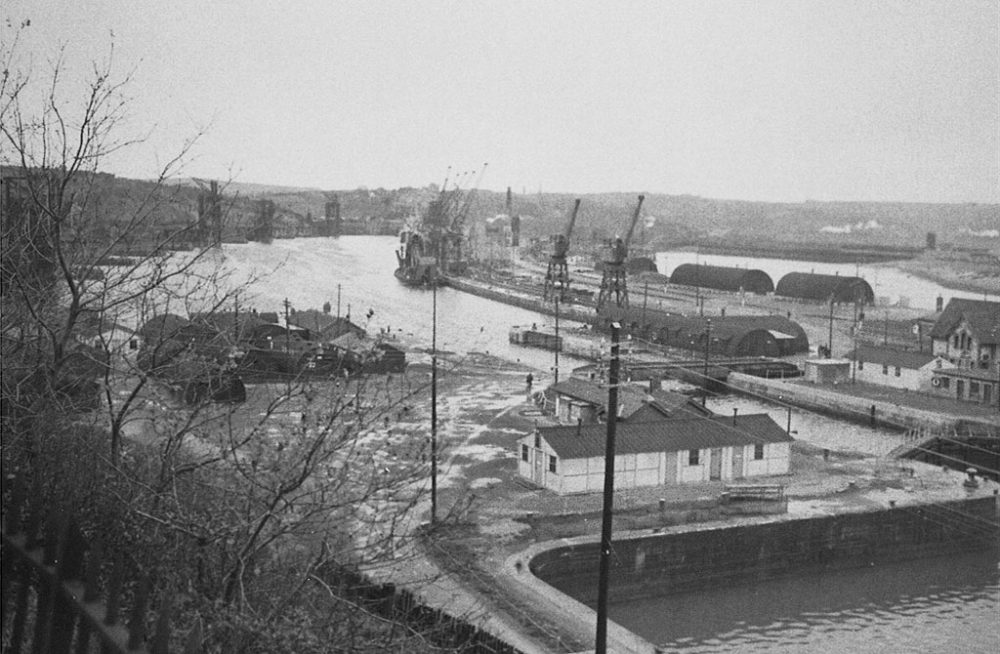The Welsh Witch Squabble

Norena Shopland
Back in 1878, a well-known journalist got involved in a squabble about Welsh witches.
It began when Sais Cymreig from Roath sent a letter to the Western Mail, considering the name ‘Cefn-y-Wrach,’ a shoal in Penarth dock shaped, supposedly, like a ‘Witch’s Back.’
Sais Cymreig argued that the ‘philological etymology’ signified a ‘diminutive, aged stature, and does not imply the moral character or professional calling.’

To back this up, he cited examples of the suffix ‘ach’ denoting, according to him, something small like poblach (small people), dynionach (small men) corach (dwarf), and putting this with ‘gwr’ for ‘man’ you have ‘a small man.’
Yet this was applied to witches, which he argued should have the feminine suffix ‘en’ so ‘gwarchen’ for a small woman. Tradition however, had embedded gwrach to denote female witches.
Male attributes
J.A. Morris from Sketty Park replied, arguing the suffix ‘ach’ meant ‘woman,’ and continued, “witches were generally supposed to be of the epicene gender’ and were: always supposed to have lost all their feminine beauty, and to have taken up some of the attributes of men, such as moustachios and other equally virile appendages.
“Here, therefore, there is no change of a single letter in the Welsh word, and makes it mean a “man woman” or a “woman man.”

This gender-bending appears elsewhere; Gwrach y Rhibyn (hag of the dribble) a hideous hag approached people about to die.
Female in appearance and legend, but sometimes appearing as male, the gwrach’s cries included Fy ngŵr, fy ngŵr (my husband, my husband) or, in a male voice, Fy ngwraig! Fy ngwraig (my wife, my wife).
Some writers on Welsh traditions, have referred to men cross-dressing, particularly on All Hallows’ Day (Halloween) to appear as threatening as possible, called gwrachod.
A couple of poems in the Welsh press refer to ‘Y Gwrach-Ddyn’ (The Witch-Man), and ‘gwrach wryw’ (a male witch).
Meanwhile, back on the letters page, Ieuan Gryg wrote a lengthy piece in the South Wales Daily News dismissing the suggested definitions for Cefn-y-Wrach including that by ‘a correspondent who rejoices in the nom de plume of “Morien,” who was to settle this intricate question “for ever and two days more.”
‘Ludicrous’
‘This luminary,’ he claimed, defined gwrach as a ‘swatch of hay in the sea … All this is very ludicrous.’
Ieuan Gryg’s theory was that gwrach was the name of a fish (it’s also called a wrasse from the Cornish wragh, a form of gwragh, meaning an old woman or hag, and in Breton, gwrac’h) and that a multitude of fish would be y-wrach, concluding that ‘being part of the name of a spot in the sea, renders it more probably that such a term means a fish, than either a witch or a bundle of hay!’

Morien, Owen Morgan (1836?-1921), was a slightly eccentric character who wrote chiefly for the Western Mail (1870-1899) especially on historic matters; although his accuracy has on times been challenged.
He was stung by Gryg’s article, complaining that Gryg ‘like crotchety men generally, attempts to ridicule all theories but his own,’ and of his ‘glaring misrepresentation of my theory.’ He had, he explained, suggested the shoal resembled the shape of a heap of hay, sometimes called by farmers gwrach o wair (hair of the witch) and this had possibly influenced the name.
Morien dismissed Gryg’s theory about the fish, asking how a hill ten miles from the sea could be called Bryn-y-Wrach?
There the matter lay, until 17 years later Morian was drawn back into the discussion.
‘Hag’
Egerton Phillimore (1856–1937) a man regarded as the ‘greatest living expert on Welsh placenames,’ had, according to Morien, fallen ‘into the common error of supposing that the Welsh name “Gwrâch,” given to the ‘Goddess Cariadwen … signifies “Hag”!’
Having stated, ‘all past writers on Celtic mythology have fallen into the same error,’ Morien (now the Archdruid of Wales) took it upon himself to correct them.

‘Now,’ he began, ‘Gwrach is a compound of Gwr, a name here used as an adjective, and signifying manly or virile,’ and ach, Morien stated, is used as a noun to signify characteristic.
Therefore, gwrach signified that Cariadwen [Ceridwen] was of manly characteristics, referring to her Amazonian courage … most usually she was represented with a helmet on her head, a large plume nodding in the hair, and a great spear in her right hand. Although most images do not show her like this.
After this, the squabbling in the letters’ pages died down.
Nowadays, gwrach definitions tend to move away from the misogynistic ‘hag,’ ‘harridan,’ ‘crone,’ etc, and favour words like ‘witch,’ or ‘sorceress.’
Support our Nation today
For the price of a cup of coffee a month you can help us create an independent, not-for-profit, national news service for the people of Wales, by the people of Wales.




